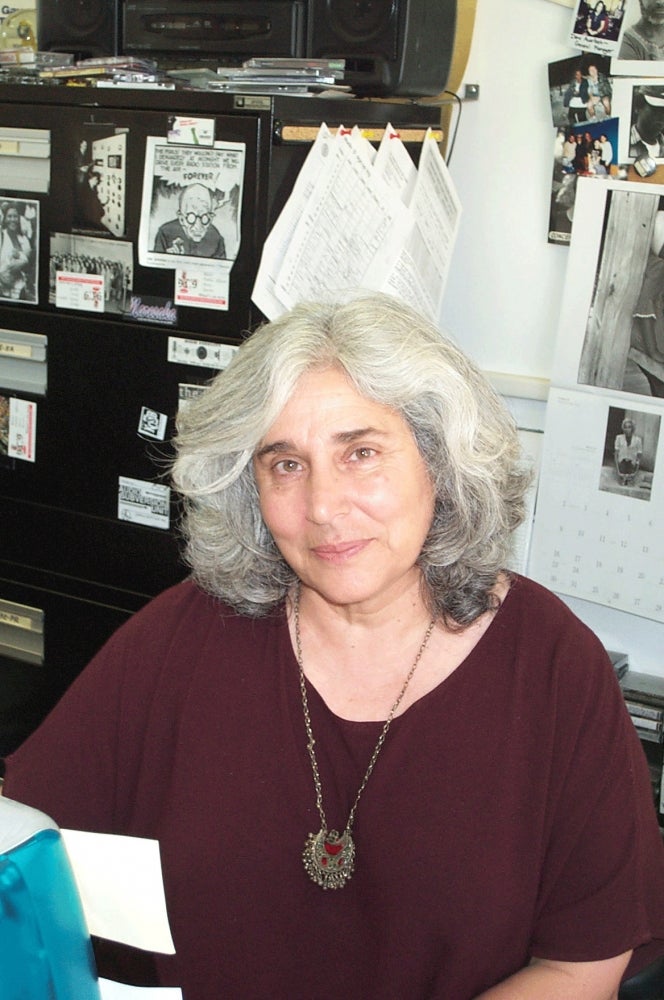
CAMPUS RADIO ADVISOR TO PROVIDE UNCONVENTIONAL COVERAGE OF REPUBLICAN, DEMOCRATIC PARTY POWWOWS
With George W. Bush and Al Gore Jr. already the obvious nominees of their parties for president of the United States, what questions remain to be answered by next month's political conventions?
Certainly not the party platforms, which have been as carefully preconstructed and decided upon as the candidates themselves.
And probably not the identities of each man's choice of running mate, which will apparently be announced before the first gavel of each convention.
So with each convention little more than a party pep rally, what remains as newsworthy fodder for the scores of journalists who will be present?
Well, for the University of California, Santa Barbara's Elizabeth Robinson, advisor to campus radio station KCSB-FM, the answer is simple.
"We're going to focus as much on what's going on in the streets as on what's happening in the conventions," said Robinson, who will co-host a daily news program called "UnConventional Coverage 2000" for the National Radio Project at each of the conventions.
"We are also going to be looking at issues that maybe should be part of the political agenda but are being neglected."
"UnConventional Coverage 2000" will be available on more than 30 radio stations across the country, including KCSB (91.9 FM) and KCBX (89.9 FM) in San Luis Obispo.
Many demonstrations are planned at the conventions, but according to Robinson, it isn't likely the demonstrators' messages will be adequately reported by mainstream media.
"Typically what happens is you get (television) shots of people demonstrating and maybe a slogan or two," she said.
"But never what the issue is all about."
Robinson and her co-host, veteran columnist and commentator Norman Solomon, plan to correct that oversight.
On their list of topics are jobs, housing, access to health care, education, campaign finance reform, and democracy.
They also plan to examine the political process and discuss how conventions have evolved from open democratic forums to prepackaged political commercials.
"I hope we can get somebody to talk about what has happened to the convention process that has turned it into a pretty much meaningless activity," Robinson said.
And Robinson promises that the program will not resort to interviews of other journalists.
"There are going to be lots of people around whose stories are not getting told, so I think we will not want for other informants," she said.
"And I can promise them we will do them the courtesy of giving them enough time
to express themselves."
"UnConventional Coverage 2000" will air for one hour each day, July 31 through Aug. 4 for the Republicans and Aug. 14 through Aug. 18 for the Democrats.
Campus radio KCSB will carry it at 5 p.m.
The program can also be heard by contacting the National Radio Project Web site, www.radioproject.org.
Adding another UCSB angle to "UnConventional Coverage 2000" will be segments by field reporter Monica Lopez, a UCSB alumnae and former student manager and program director of KCSB.
In addition to being KCSB's advisor, Robinson produces the station's "No Alibis" (8:30 a.m., Wednesdays) and "Third World News Review" 7:30 p.m., Tuesdays) and produces a video version of "Third World News Review" (6:30 p.m., Mondays) for Cox Communications Channel 17.
She is vice president for North America of the World Association of Community Radio Broadcasters.
Robinson is looking forward to the conventions.
"We're going to be really busy," she said.
"But it's going to be a lot of fun."



